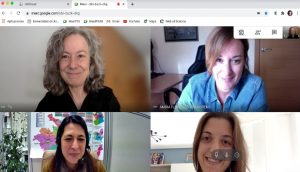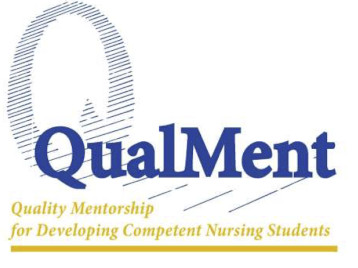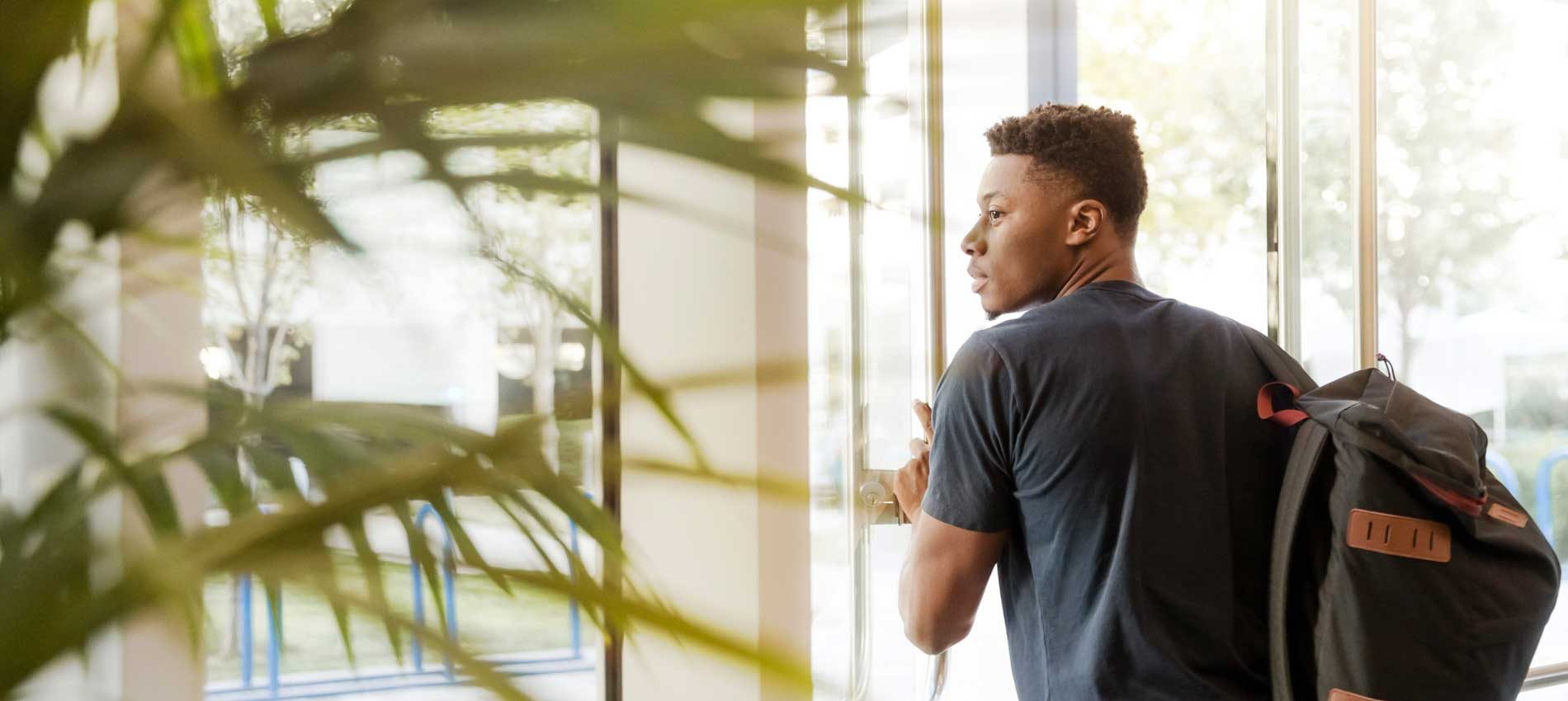


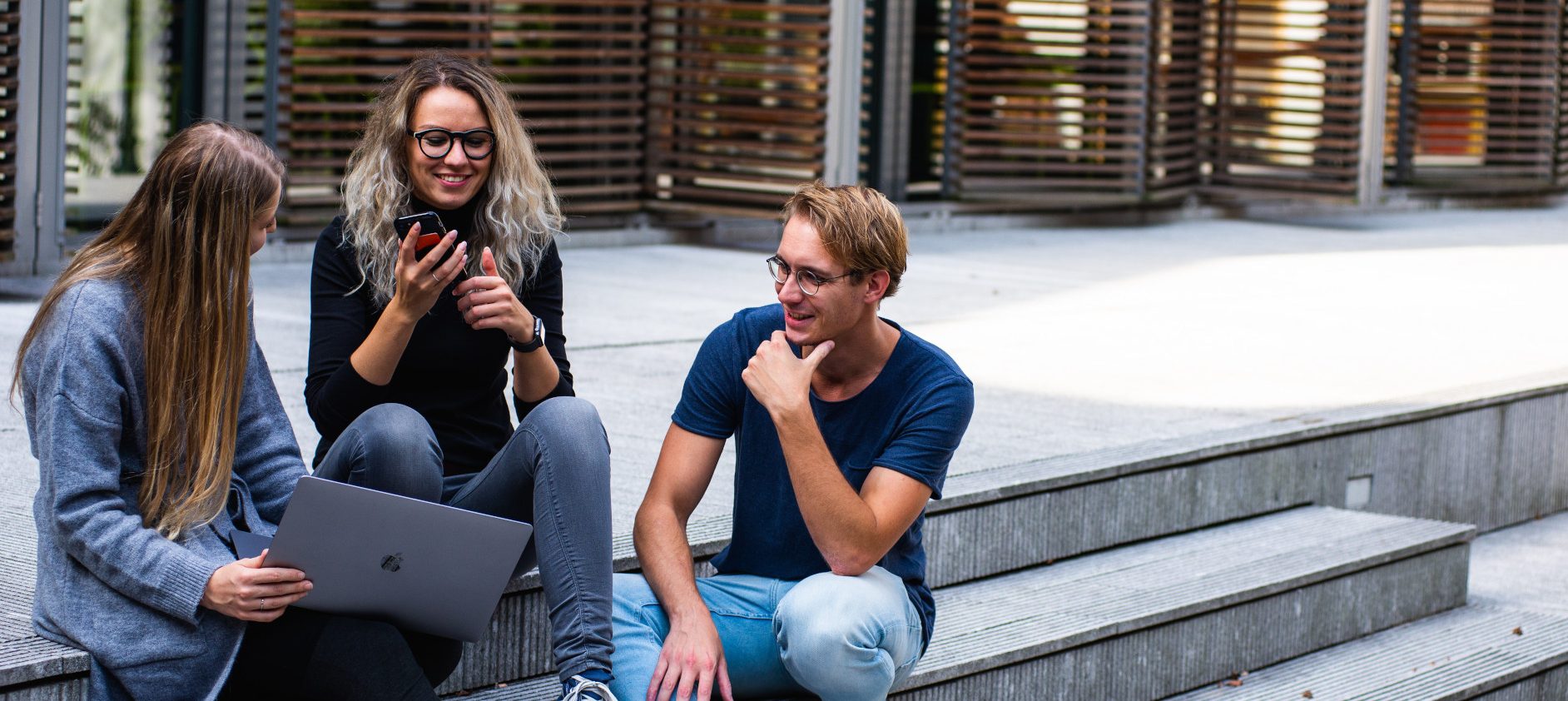
QualMent Project is addressing the clinical mentor’s skills development in nursing student mentorship and developing the clinical mentor’s competences in line with Directive 2013/55/EU (Art 31). With a view to coming up with robust results, project partners are developing the clinical mentor’s competence model to support frontline nurses in the clinical placements of their study programmes across Europe. This competence model will be supported by a course on advanced mentorship competences, which partners are developing too.
The continuous impact of the COVID-19 pandemic in Europe has changed the way the EU institutions operate and prioritise the topics they work on. As of today, much of the focus is given to dealing with the health crisis and its economic consequences – however, research and innovation are getting high on their political agenda.
In this context, even though it was put “on hold” for a few months, the partners continued, adapting themselves to the situation, with the project development, namely by testing the mentorship modules across Europe, at different pilot sites – Finland, Lithuania, Slovenia and Spain.
Below a small overview of what was done so far.
University of Oulu (Finland)
At the University of Oulu, a total of three rounds of the mentoring education developed was implemented based on the course content development within the project. During the first round in spring 2020, quick changes had to be made to the original plan and the last contact teaching day had to be conducted online. Despite these changes, mentors were extremely satisfied with the education and almost all mentors finished the education. Additional time was provided to complete the assignments and mentors were thankful for this opportunity.
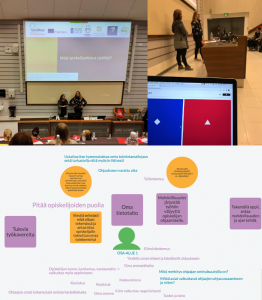
In fall 2020, they rolled out the second round of the mentoring education and were able to meet clinical mentors in person on the first contact teaching day, which was a great opportunity to get to know each other and create a good learning environment. The second and third contact teaching days were held online. They integrated all the planned group work assignments and simulation exercises into their online teaching. To their surprise, the online teaching days went extremely well. Mentors jumped into different roles and played out different mentoring situations very nicely. They integrated several different online platforms to improve interaction and learning amongst participants (Flinga, AnswerGarden, Zoom polling questionnaires). They had great discussions and got great feedback from mentors.
Currently, they are in the middle of round three of their mentoring education which will be conducted from January to March 2021. Unfortunately, they will not meet the mentors in person during this final round. Instead, the education will be conducted entirely online. Some videos have been created to help the mentors orientate to the education and understand how to overcome possible technical issues. They are highly optimistic that this round will be as successful as the previous ones.
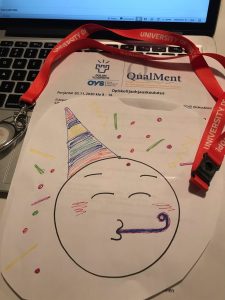

The importance of structured mentoring education for clinical mentors in healthcare is clearer than ever. They have been living interesting and difficult times due to the global corona pandemic. The need for securing a competent nursing workforce has been brought up in discussions and in the news throughout the year. They have also been pleasantly satisfied by the fact that the issue of securing safe clinical learning environments for nursing students has also come up in these discussions.
Their mentoring education has been a success and they can see that the word has spread about it on a national level. They have had an abundance of applicants to our education and, unfortunately, they have not been able to take everyone in. They have future plans to integrate project outcomes into the further development of mentoring education in Finland.
Lithuanian University of Health Sciences (Lithuania)
The Lithuanian University of Health Sciences continued teaching mentor’s education, within the framework of the project, despite the challenging COVID-19 pandemic, undertaking two rounds of the education. The training course was registered at the Postgraduate Study Center of the university to provide the certificates after completion.
The first course was arranged at the end of August 2020 and has had 6 face to face sessions during two weeks of the period. Nurses from University and city hospitals were enlisted to the course. Several nurse managers, usually enrolled in the clinical training of nursing students, also participated. The second course was held in October-December 2020 and has had one full day of face-to-face sessions and two days of online live teaching. Additionally, according to the mentor course content, the participants studied some lectures individually on the course platform. The course was available on the university platform. The course material was prepared, and teaching was provided by Prof. Olga Riklikiene and assistant professor and clinical nurse Erika Juskauskiene.
In total 43 clinical nurses and nurse mentors completed the course. As it was agreed, all the participants filled in the survey to measure their mentorship competence before and after the course. The prompt feedback provided by participants revealed that the content of the program is novel and covers many important aspects of the everyday practice of mentoring nursing students. Mentors in the course very much appreciated the discussion on generation differences, the use of e-tools in mentoring, the need for the development of cultural competence in care and mentoring, providing effective feedback, and stimulating student reflection. It was recognized that the program reaches an advanced level of mentoring and should be provided for nursing mentors on a constant basis.
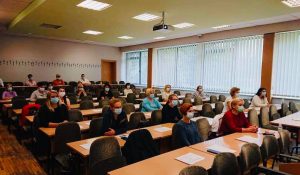
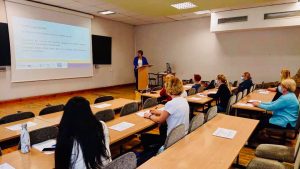
College of Nursing in Celje (Slovenia)
At the College of Nursing in Celje mentor’s education started in February 2020 with topics of Module 1. The education was conducted face-to-face and 73 mentors attended. Because of this high number of attendance, they decided to divide mentors in two different groups, since they wanted to enable everyone that expressed an interest to be part of the programme. Within these two groups, they formed smaller groups of 4-5 participants each. This allowed actively involvement of mentors in education and made education more effective. The first part of education had positive feedback from both lecturers and mentors. They planned to continue the education in March and April 2020, but unfortunately, that was not possible due Corona virus epidemic. Hoping to continue with face-to-face education in September 2020, the conditions due to COVID-19 in Slovenia forced them to do the course online. They also faced cancellations of attendance of the mentors since this was the time that they faced enormous challenges at their workplaces.
They met on-line eight times during November and December 2020, with the first online meeting held on 6th of November and the last one on 15th of December 2020 with the final lecture and second fulfilment of the MCI questionnaire. In the end 33 mentors continued the education online covering the topics of the Module 2 and Module 3. All of them finished all courses successfully.
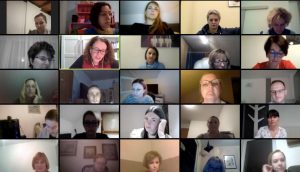
They are very satisfied with the active participation of the mentors and their positive feedback. According to the evaluation of the education done with Mentimeter on the last meeting, 87% of the mentors were very satisfied, 19% were somewhat satisfied and 4% were somewhat dissatisfied, none of them were dissatisfied with the education. It was also interesting to see their opinion on online education versus face-to face one. 61% of them expressed that they would rather have only face-to-face meetings, while 29% would like to combine the two approaches, and only 11% would prefer online education over face-to face one. In terms of content of each Module, the results show that for Module 1: 29% of the participants of the course found the content of the education very useful, 68% found it useful, and only 4% said that it was somewhat useful. For Module 2: 29% answered that the content of the education was very useful, 54% answered that was useful and only 18% said that it was somewhat useful. For Module 3: 50% found the content of the education very useful, 46% found it useful, and only 4% said that it was somewhat useful. And what is very important is that 69% of the mentors think that the knowledge and skills that they gained will be fully applicable for mentoring students, 31% think that it will be somewhat applicable and none of them think that it will not be applicable. These results show that we are on the right path with forming the final version of the educational programme for mentors.
The whole educational programme was also accredited by the Slovenian Nurses and Midwives Association (Chamber) and the mentors will receive license points for their attendance.
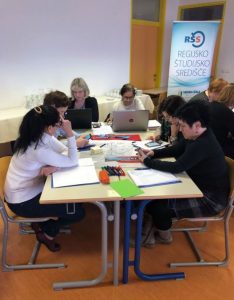
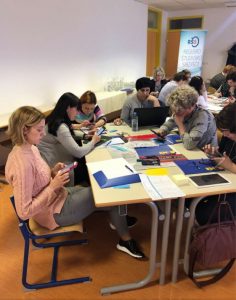
Since there was a great interest in the education and that unfortunately many mentors could not continue the education in the autumn, Slovenia partner is planning to conduct another round of education in the autumn 2021. Now they are starting the next phase of the project and mentors are implementing mentoring process in clinical environments empowered with new knowledge and skills. They will meet them again in April 2021 when they will be implementing another evaluation and fulfilment of the MCI and MCCI questionnaires.
See here a short video showing how the testing of the course have been.
Alicante University (Spain)
After having to suspend the course scheduled for March 2020 by indication of the health authorities, due to the COVID-19 situation, Alicante University have been able to successfully implement it in the months of October and November 2020. They have followed the compulsory dual teaching mode at the University of Alicante in this academic year.
The teachers have been Rosa Pérez-Cañaveras and Maria Flores Vizcaya-Moreno – project partners themselves.
